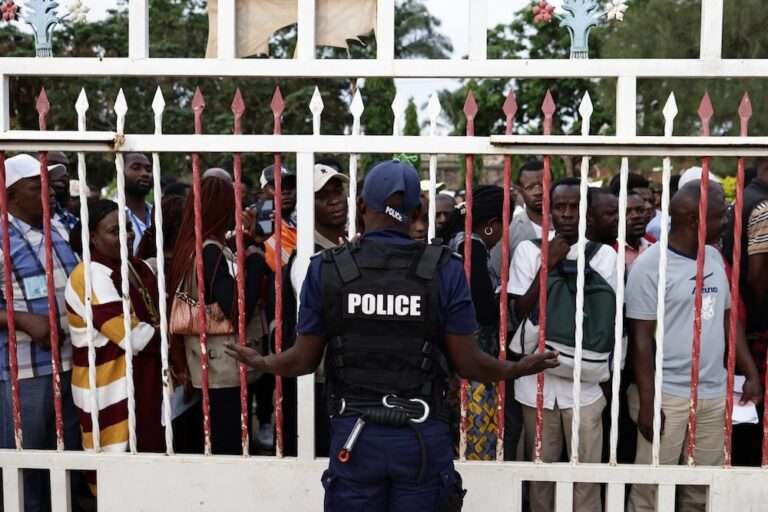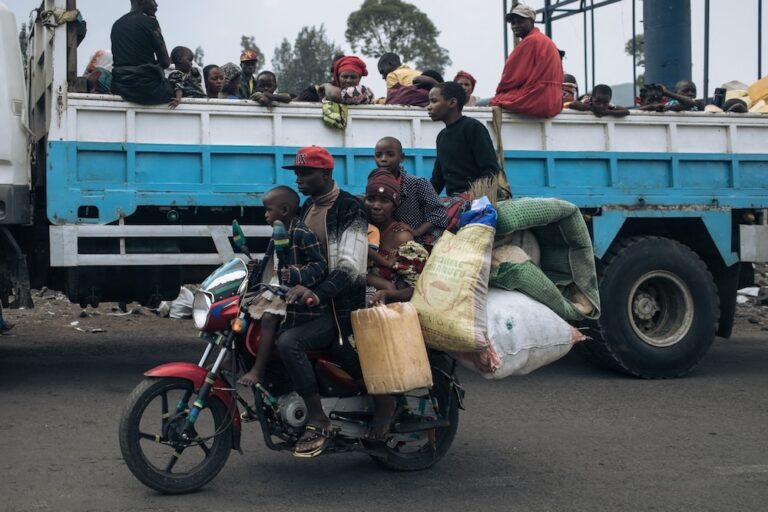(RSF/IFEX) – Reporters Without Borders hailed the release on 14 February 2006 of an investigation report by partner organisation Journaliste en danger (JED) into the murders of Franck Ngyke Kangundu, a journalist for “La Référence Plus”, and his wife Hélène Paka. The organisation highlighted the courage of JED leaders, who braved severe risks to their […]
(RSF/IFEX) – Reporters Without Borders hailed the release on 14 February 2006 of an investigation report by partner organisation Journaliste en danger (JED) into the murders of Franck Ngyke Kangundu, a journalist for “La Référence Plus”, and his wife Hélène Paka.
The organisation highlighted the courage of JED leaders, who braved severe risks to their safety to successfully complete a thorough investigation, the conclusions of which called for an immediate political response.
Reporters Without Borders urged Congo’s President Joseph Kabila to set up an independent investigation to shed light on this politically motivated double murder on the basis of the JED investigation.
“The government of the Democratic Republic of Congo should not stint on justice to stabilise and pacify the country,” said Reporters Without Borders. Bungled by the police until now, the Franck Ngyke case needs to be solved to heal the wounds inflicted on this country by this double murder.
“Harassment, obstruction and political bad faith have all prevented the authorities from progressing. This case must therefore be promptly handed over to a third party whom witnesses can trust and whose conclusions will be free from any suspicion of partiality.”
“We urge the international community, which is overseeing the transitional process, to provide protection to JED and the witnesses to the murder and to join us in demanding the prompt setting up of an independent investigation, in which we are ready to take part,” the organisation concluded.
In its investigation report, JED reconstructed Ngyke’s final days and identified the last people to have seen him alive. The Congolese organisation also stressed a number of inconsistencies in those people’s accounts and drew attention to disturbing facts casting suspicion on leading figures in President Kabila’s ruling People’s Party for Reconstruction and Democracy (PPRD).
Its investigations also reveal the need for an explanation for the attitude of the police and some of these leaders after the murder. In reconstructing the journalist’s career, JED showed that he worked unofficially for important members of the government and the PPRD and that he could, as a result, have been in possession of sensitive information.
Ngyke and his wife were murdered at their home in the eastern district of Kinshasa in the early hours of 3 November 2005 after four armed men in civilian garb, who had lain in wait, approached the journalist after he got out of his car to open the gate to his house.
“We have come to kill you,” said one of them, before the couple were gunned down. One of the journalist’s sons, aged about 20, an eyewitness to the double murder, was taken to hospital with serious injuries. Police have from the start worked on the theory that the murder was an ordinary crime, although neither the journalist’s car nor money was stolen.


